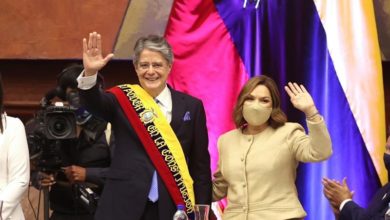Sri Lanka’s anti-terror law amendment panned by activists as insufficient

New Delhi, Mar 23 (EFE).- Sri Lankan opposition and international rights groups on Wednesday said that the amendments brought by the government to the Prevention of Terrorist Act were insufficient, and more measures were needed to stop the misuse of the controversial law.
Amending the PTA, widely criticized for granting unprecedented powers to the government to arrest dissidents, was a key commitment made by Sri Lanka for being readmitted in 2017 into the European Union’s Generalised System of Preferences Plus (GSP+), which offers special trade benefits to developing nations.
The amendment to the law, established in 1979, was approved by a comfortable majority in the Sri Lankan parliament, after repeated appeals by the EU, the United States and several international bodies.
Although the EU delegation in Sri Lanka welcomed the amendment as “first steps in the right direction” in a tweet, it urged Colombo “to take further steps to make the PTA fully compliant with international norms and to continue reducing the use of the PTA.”
Meanwhile the US acknowledged the island nation’s “efforts to reform the Prevention of Terrorism Act (PTA), the release of long-term PTA detainees, the justice reform agenda, and engagement with civil society representatives,” in a joint statement on Wednesday after a bilateral dialog.
However, it “encouraged Sri Lanka to continue making progress on its commitments to reconciliation and human rights.”
The leader of the opposition alliance Samagi Jana Balawegaya (SJB), Sajith Premadasa, voted against the amendment and intensified his criticism of the law, alleging that the approved amendments did not address the law’s problems and demanding that it be fully revoked.
The objections against the PTA are based on claims that it denies the fundamental rights of the accused by allowing long detentions without trial and using uncorroborated confessions made to the police as evidence for conviction.
Rights groups such as nonprofit Human Rights watch have alleged that the law has been used for political persecution, especially against minority communities, leading to arbitrary detentions and torture. EFE
igr/ia





